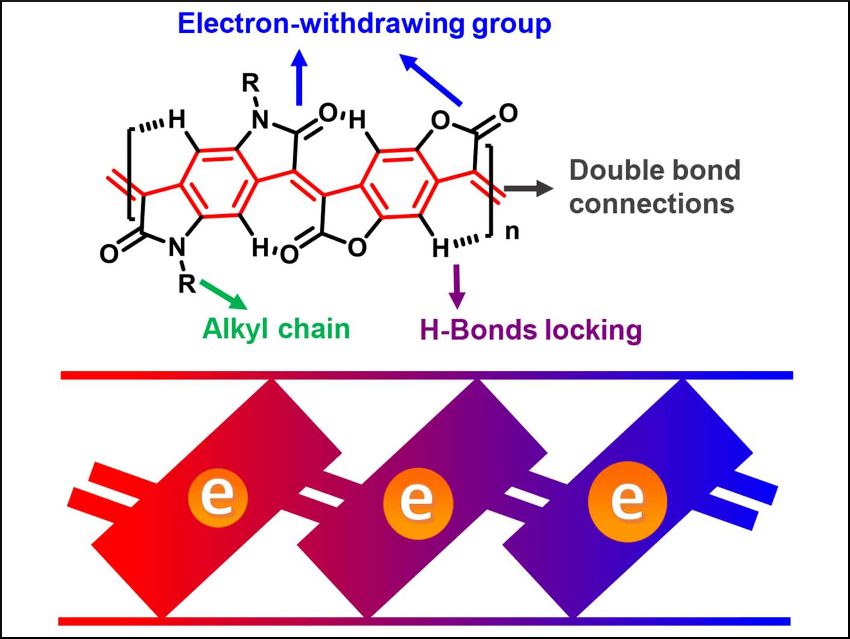Thermoelectricity is the conversion of a temperature gradient to electric voltage or vice versa. Thermoelectric devices can, thus, be used for heating, cooling, or power generation. Complementary p-type and n-type conducting polymers are needed to prepare efficient organic thermoelectric materials. However, compared to p-type polymers, most n-type conducting polymers perform poorly and are not air-stable under ambient conditions.
Jian Pei, Peking University, Beijing, China, and colleagues have created rigid and coplanar polymers, called LPPVs, which have poly(p-phenylene vinylene) backbones. The polymers have a low conformational disorder and strong interchain interactions. In combination with a long polaron delocalized length—a phenomenon describing charge carrier influence on molecule polarization—, these properties promote charge transport. Moreover, the material can be doped to improve its efficiency, for example, with the n‐dopant 4‐(1,3‐dimethyl‐2,3‐dihydro‐1H‐benzimidazol‐2‐yl)phenyl)dimethylamine (N‐DMBI). The synthesized LPPVs also have good stability in air.
After doping, LPPV-1 (R=C20H41, pictured) has a conductivity of 1.1 S cm–1. After 76 days of storage under ambient conditions, a doped LPPV-1 film retained a high conductivity of 0.60 S cm–1. According to the researchers, LPPV-1 is the most stable n-type polymer thermoelectric material prepared to date.
- Rigid Coplanar Polymers for Stable n-Type Polymer Thermoelectrics,
Yang Lu, Zi-Di Yu, Run-Zhi Zhang, Ze-Fan Yao, Hao-Yang You, Li Jiang, Hio-Ieng Un, Bo-Wei Dong, Miao Xiong, Jie-Yu Wang, Jian Pei,
Angew. Chem. Int. Ed. 2019.
https://doi.org/10.1002/anie.201905835



![Synthesis of [c2]Daisy Chains via Mechanochemistry](https://www.chemistryviews.org/wp-content/uploads/2025/04/202504_RotaxanesWithSolidStateMechanochemistry-125x94.png)
